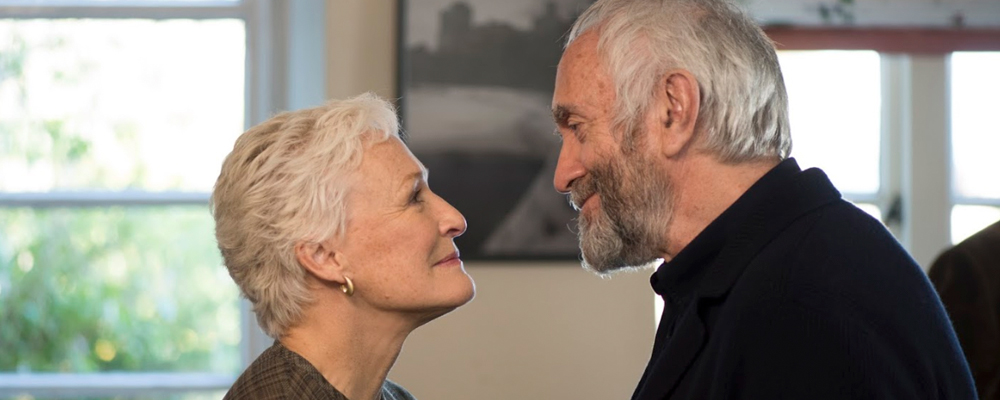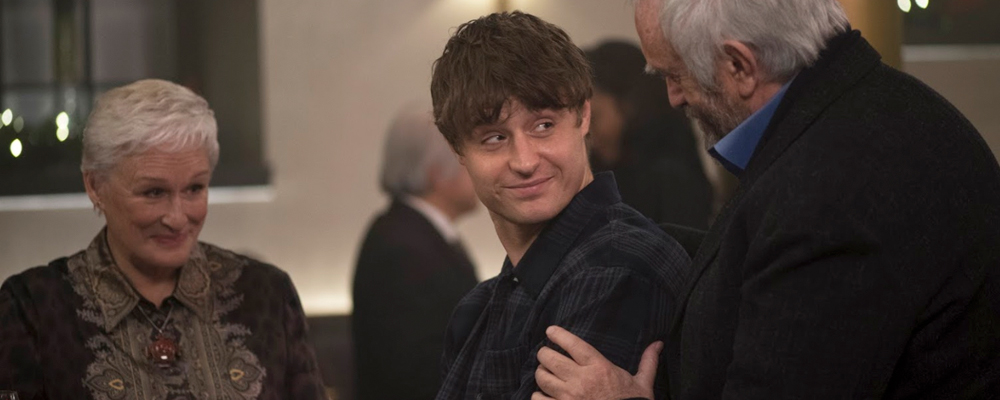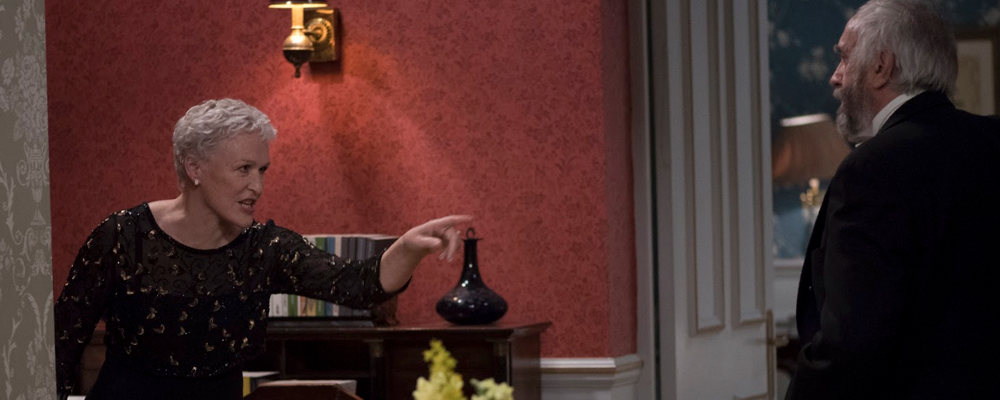Glenn Close Delivers Career-High Performance in ‘The Wife,’ a Compelling Portrait of a Marriage
Sandra Miska
In a role that could possible nab Glenn Close her first Oscar, Close plays against type in character-driven drama “The Wife.” Based on Meg Wolitzer’s 2004 novel of the same name, the story, which takes place in 1993, centers around Joan Castleman (Close), the spouse of famed novelist Joseph Castleman (Jonathan Pryce). When the Castlemans receive an early morning phone call informing them that Joe will be receiving the Nobel Prize for Literature, they both are elated. However, beneath her exterior as the calm and gracious wife, a storm is brewing inside of Joan, and layer and layer reveals that she is not the woman whom her husband’s sycophants, her children, and even her own husband think they know.
“The Wife” was helmed by Swedish director Björn Runge.
“Working together with those extremely good actors, it was a gift for me. It was a blast,” Runge divulged to Entertainment Voice.
Far from the more forceful women Close has played in the past, Joan is the silently suffering wife forced to play second fiddle to her husband, a serial philanderer afflicted with fragile masculinity.
“When we found Jonathan Pryce, he was the perfect guy, because he dared to be weak,” recounted Runge. “He dared to be bad guy, and that’s important, I think [for an actor] to have no problem being both good and bad, both light and shadow.”
Much of the tragedy surrounding Joan come from the fact that Mrs. Castleman, herself once an aspiring writer, was born in the wrong era. The 1993 storyline is interwoven with flashbacks to the late 1950s and 1960s, when young Joan (Annie Starke, Close’s real-life daughter) and Joe (Harry Lloyd) were madly in love. The pair first met at Smith College, where Joan was a promising student and Joe a married professor with a wandering eye. In a particularly heartbreaking scene, Joan is discouraged from pursuing her passion by none other than an alumna (Elizabeth McGovern), a drunk author bitter about her own lack of commercial success.
Runge, who worked alongside screenwriter Jane Anderson in the weeks leading up to filming, explained how he was partly inspired by Alice Munro after reading an interview with the Canadian short story writer.
“She was saying that when she was beginning to write in the sixties, she was forced to tell the neighbors, ‘I’m sick, I’m going to be sick for one week, so I can’t be social.’ …She [pulled down her blinds], and then she was able to be on her own for one week. She couldn’t tell the neighbors, ‘I’m going to write,’ because then she would have problems in the neighborhood.”
The plot picks up once the Castlemans, along with their adult son, David (Max Irons), head to Stockholm for the ceremony and find themselves being followed by Nathaniel Bone (Christian Slater), a persistent reporter obsessed with getting approval from Joe to write his official biography. Bone proves to be more than a pest after he seeks out Joan in the lobby of her hotel. Over drinks, he reveals that he has uncovered a secret about her and Joe. Close is engrossing here as she attempts to deny something that has been eating at her for decades.
Nathaniel also seeks out David, who is less able to stay composed, an innocent bystander in all of this drama. An aspiring writer himself, he has to come to terms with the fact that the man he has idolized for his whole life isn’t who he thought he was. The third act of “The Wife” contains two very emotionally-charged scenes in a hotel room. The first one involving David confronting both Joan and Joe, and a final one in which Joan finally reaches her breaking point with her husband. In both of these scenes, cinematography amplifies the emotional effect, as the camera acts almost as another character.
“The camera is very important, [because] if you find the right place to put the camera [in relation to the actors], you can communicate the energy from the actors to the audience in a good way, and that’s very important,” explained Runge.
Runge went on to discuss how he, along with the cinematographer, observed Close and Pryce during rehearsals in order to make decisions regarding camera placement.
“For me, it’s very much about observing. I’m an observer,” said the director. “I can read what’s happening between two people, and that’s the key for my directing, not so much going and [giving orders]… The camera is a tool for me when I direct.”
This being a film about marriage, it seemed appropriate to ask Runge about his own wife, lead editor Lena Dahlbeg, whom he met 31 years ago at film school in Stockholm.
“We love to work together,” he said of their harmonious professional relationship. “When we work together, we are not husband and wife; we searching for the best [rhythm] for the film, and it can be tough in the editing room. …I trust her judgement and her taste, so for me, it’s easy to work with her, because she is a protector of the characters in a very good way.”
At the end of “The Wife,” it is Runge’s hope that the viewer takes away the film’s message about the importance of being truthful.
“Truth is a key to healing, even if it’s painful… They had in this family a big secret that had become a burden, and the son was the one who paid the highest price for it.”
Currently, Runge is seeking the truth about Steve Bannon, as he is writing a play to be performed in Sweden centered around President Trump’s controversial former chief strategist.
“I don’t want to judge him. I want to see how far I can take it without judging him.”
“The Wife” opens Aug. 17 in New York and L.A., expanding to other cities in the following weeks.



